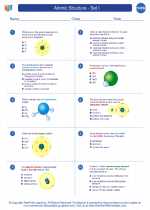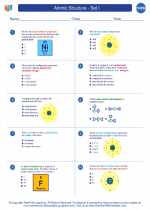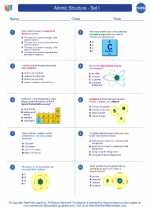Species in Chemistry
In the context of chemistry, the term "species" refers to a specific type of atom, molecule, ion, or free radical. Understanding the concept of species is fundamental to many aspects of chemistry, including chemical reactions, stoichiometry, and the behavior of matter.
Types of Species
There are several types of species that are commonly encountered in chemistry:
- Atom: A single, neutral particle composed of protons, neutrons, and electrons.
- Molecule: A group of atoms bonded together, representing the smallest fundamental unit of a chemical compound.
- Ion: An atom or molecule that has gained or lost one or more electrons, resulting in a net electric charge.
- Free Radical: A species with an unpaired electron, making it highly reactive.
Representation of Species
In chemical equations and reactions, species are typically represented using chemical formulas and symbols. For example, the chemical formula H2O represents a water molecule, while Na+ represents a sodium ion.
Behavior of Species
The behavior of a species is influenced by its chemical and physical properties, such as its reactivity, stability, and interaction with other species. Understanding these properties is crucial for predicting the outcome of chemical reactions and understanding the properties of substances.
Study Guide
When studying species in chemistry, consider the following key points:
- Learn to distinguish between different types of species, such as atoms, molecules, ions, and free radicals.
- Understand how to represent and write chemical formulas for different species.
- Explore the properties and behavior of different species, including their reactivity and stability.
- Practice balancing chemical equations and predicting the products of reactions involving different species.
- Review the nomenclature and naming conventions for different species based on their composition and charge.
By mastering the concept of species in chemistry, you'll develop a solid foundation for understanding the behavior of matter and the principles of chemical reactions.
.◂Chemistry Worksheets and Study Guides High School. Atomic Structure - Set I

 Worksheet/Answer key
Worksheet/Answer key
 Worksheet/Answer key
Worksheet/Answer key
